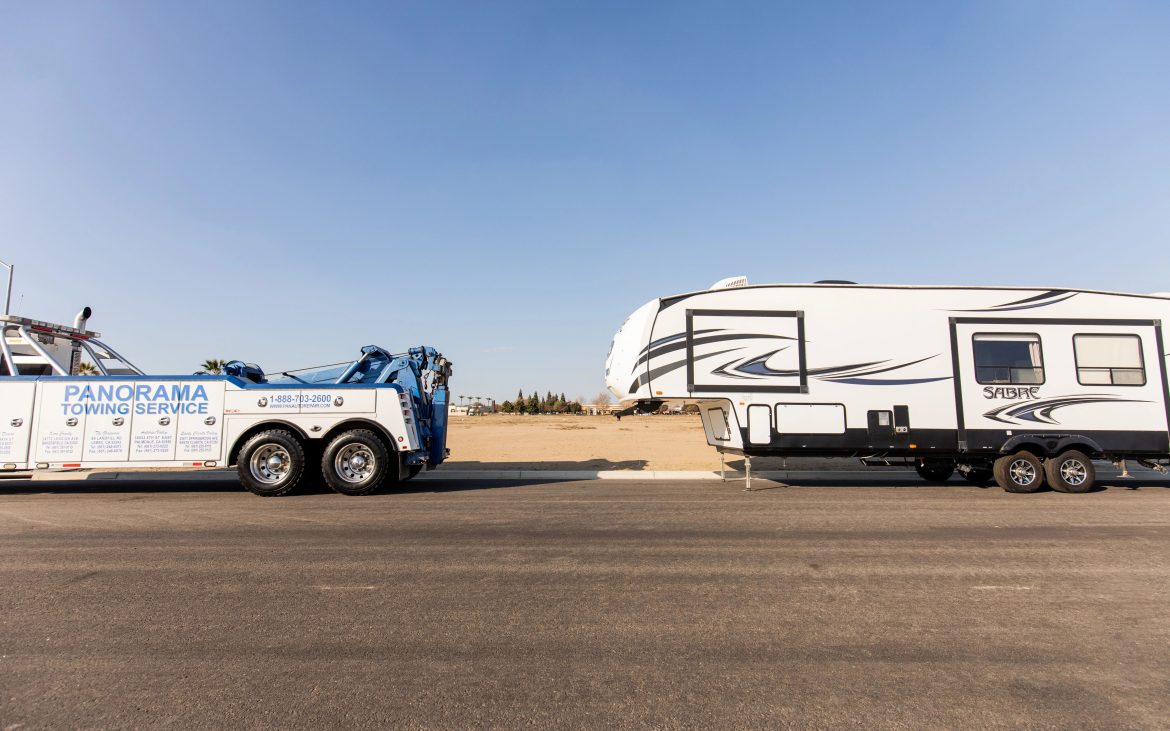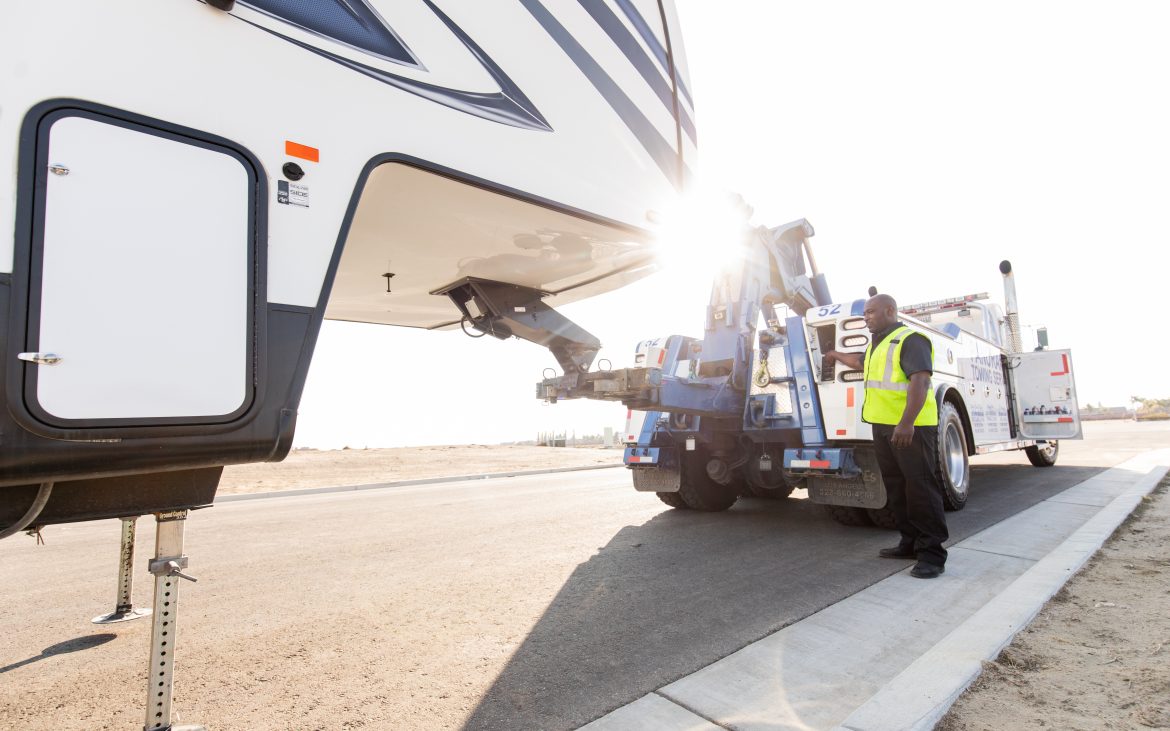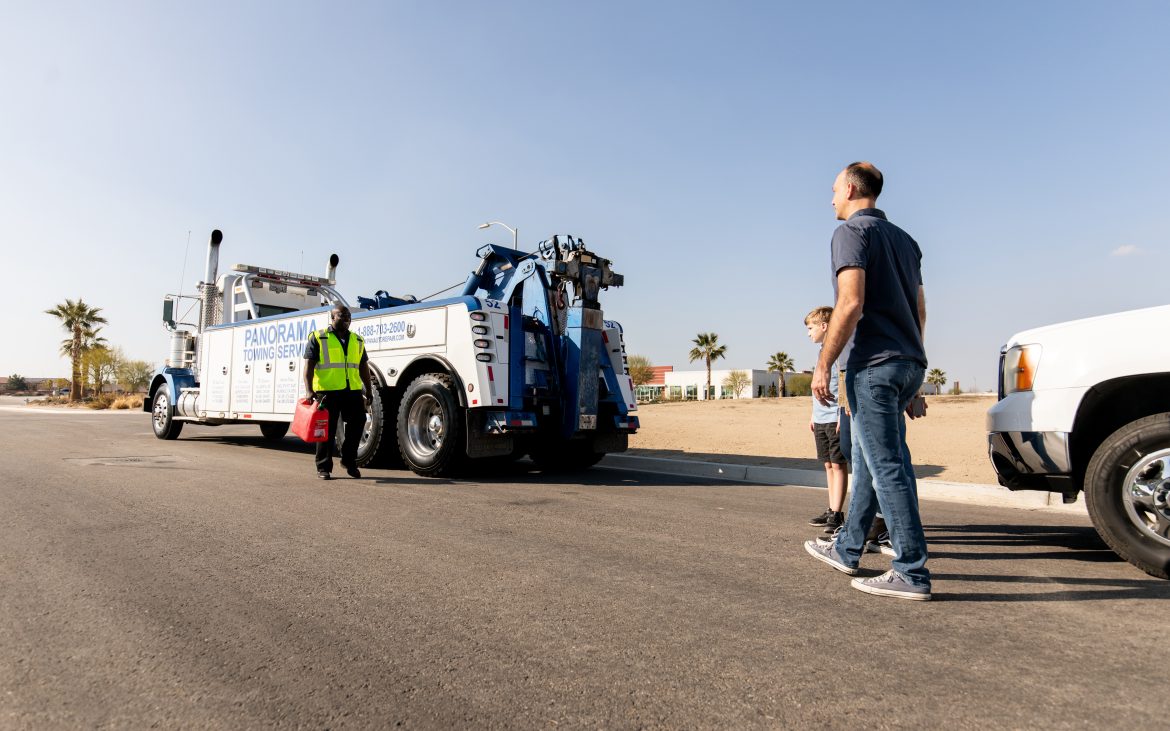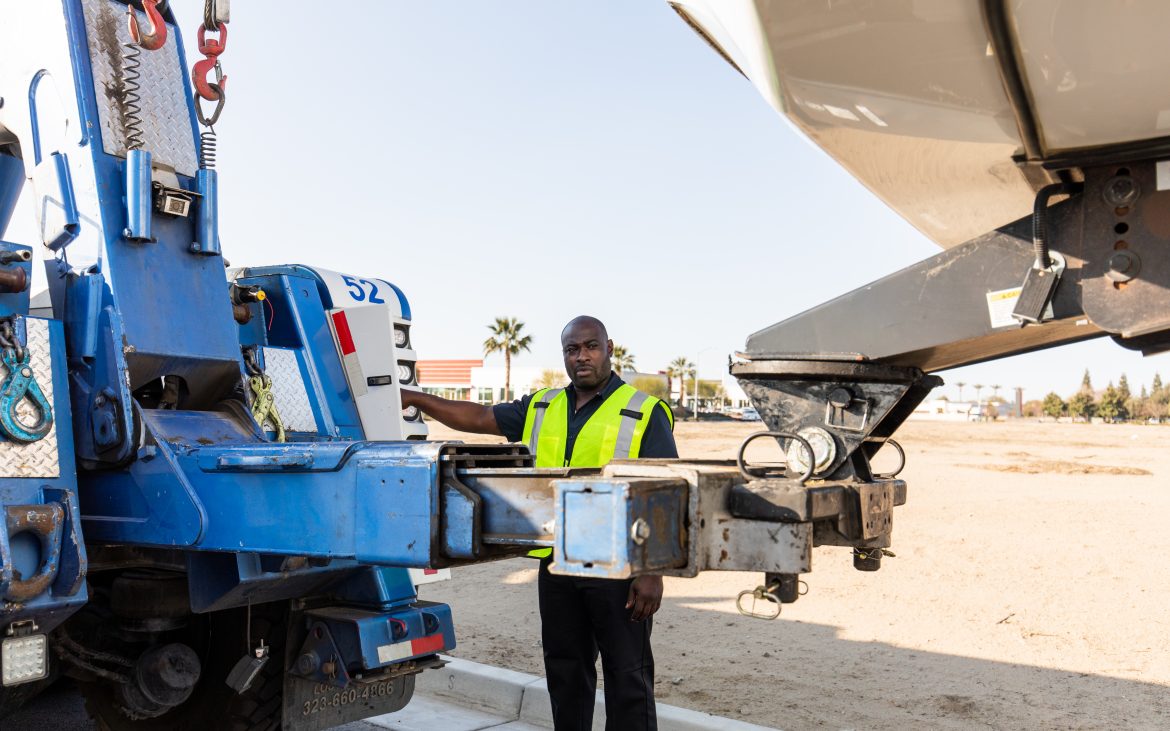WEnRV travel news, products, and industry trends
The True Cost of RV Towing Service
RVing requires more forethought than a typical trip by car because more components are involved, and you have more to plan for, especially in the case of roadside recovery. Factors like RV size, terrain, distance, type of towing vehicle, and type of towable can each make a mechanical problem more difficult to address and more expensive. That’s especially true in the case of towing.
As RVers, we’re used to self-reliance, and RV ownership means we tackle many problems on our own. But when it comes to getting towed, the best way you prepare for a trip is by being informed:
What is the cost of RV towing? What influences the price of a tow? What are cost-saving services I can invest in? What is the best roadside assistance? What affects the price of towing?Not only does RVing require more forethought than a typical car trip, but the costs of certain services often come at a heftier price tag, like roadside towing. While the typical towing incident for an automobile averages about $109 total, RV towing by a professional service provider can cost between $135-$150 an hour. And the more complications, the higher the price tag.
Knowing what to expect makes a difference, and if you choose to travel without a roadside service plan, better to know the risk than be surprised by the cost of your particular setup. Here we break down a couple of the factors that could increase the price tag of a roadside breakdown tow.
Type of RV

It’s fair to generalize that the larger the RV, the more expensive the towing. But this largely comes down to the fuel needed to reach and tow a weightier RV back to a repair shop. The larger the RV, the bigger the type of tow truck required, the lower the fuel efficiency, and the more fuel spent overall. Fuel is a major concern for towing services, and they still have to make a profit after this expense.
If you operate a fifth-wheel, toy hauler, or motorhome, the overall towing expense will likely be higher. In the same way you require a more substantial pickup truck to act as your tow vehicle (or engine size in the case of a motorhome), the same applies to the power required to tow these larger, heavier RVs.
And if the RV has been affected by an incident or collision? The situation gets even more complicated.
RV condition
If an accident or collision has occurred and the condition of your RV has been compromised, expect your towing cost to increase. Repositioning an RV stuck in precariously may require additional time and equipment.
Serious problems include needing to be pulled upright, replacing tires to tow, or being boomed and trucked away on a flatbed. Each requires the help of specialists and special equipment.
Total time
You know the drill about time and money. The more time it takes to complete a tow job, the more likely a shop to increase their fees. The problem is, in a roadside breakdown, a lot can influence how long a job takes, be it a complication, traffic, weather, or unforeseen delay. Time factors include but aren’t limited to:
Travel time to the scene of the breakdown Time to assess the problem Hookup or prep time Travel time back to the service shopDistance & location

The further your location is from the shop, the more fuel needed to send out a truck and return with your RV, and the more time accrued in travel. These add up quickly. Towing service providers often charge per mile, reflecting their expenses.
Now, your price per mile often decreases after you reach a certain threshold — meaning you don’t pay the same cost-per-mile after, say, 100 miles of towing. But, altogether, the further you have to be towed, the more you pay in fees.
This also applies to how difficult you are to reach: weather, terrain, and positioning can each add to the expense of a tow. And these added difficulties usually add to the time it takes to complete the job as well — as if expenses weren’t already high enough.
What towing services can tow my RV?

Towing a substantially-sized RV requires more substantial towing equipment. And your nearest towing provider may be unable to complete an RV tow. Worse, you may end up wasting time having a tow provider drive to your location only to tell you their equipment isn’t capable.
When calling a tow provider, be as clear as possible about the size, type, weight, position, and damage of your RV. This gives the towing company as much information as possible to make an informed decision about their capability.
To provide you with a better understanding, three main types of towing trucks might be used for your RV class.
Light duty
The towing trucks in this category are typically reserved for regular or standard towing operations for passenger-style cars and pick up trucks. This type of towing might apply to some Class B motorhomes because they typically weigh between 6,000-11,000 lbs, which is within the capacity of light duty tow trucks.
Medium duty
RVs of all types will most commonly be towed by a medium duty tow truck, and these can include various flatbeds, lowboys, and more. Their weight allowance is anywhere between 7,000 and 17,000 lbs, which covers most RVs.
Heavy duty
Class A motorhomes can weigh anywhere from 13,000 to over 50,000 lbs. With this kind of disparity, some will fall into the medium duty tow trucks, but most will require heavy duty towing equipment, especially when the towing operation is on the side of the road.
Extensive equipment comes at a high cost. If you are hitting the road with a large rig and no form of roadside assistance, it’s important to know how significant the cost can be should a roadside breakdown occur.
As RVers, there’s a lot we can prep for: routine maintenance like oil changes and fluid checks, tire pressure checks, packing the RV with a gear list, and inspecting the towing setup. But once we hit the road, the unexpected can occur.
Roadside Assistance

The good news is that RVers don’t have to absorb towing costs alone. Roadside assistance programs designed for RVers — like the Good Sam Roadside Assistance plans — ensure you aren’t at risk of paying the hefty cost of things like towing. And with a network of thousands of service providers across the country, you improve your odds of getting the most appropriate service as quickly as possible.
The keys to finding a good roadside assistance plan are to ensure you find a plan specific to your type of RV and assistance needs — and at an affordable rate. When shopping for roadside assistance, key in on those offerings: does the plan cover your type of towable? Or are you paying extra for a plan that covers heavy motorhomes, which is overkill for your travel trailer? The service level should match the price. And for a convenient, nationwide plan capable of towing your rig to a trusted service provider? The cost doesn’t need to break the bank.
The financial impact of a roadside breakdown can be far more considerable for RVers. To learn more about how a roadside assistance plan can alleviate these costs, explore our complete guide to a roadside breakdown that covers relevant information all RVers should know.
The post The True Cost of RV Towing Service appeared first on Good Sam Camping Blog.

Copyright
© Good Sam Camping Blog


